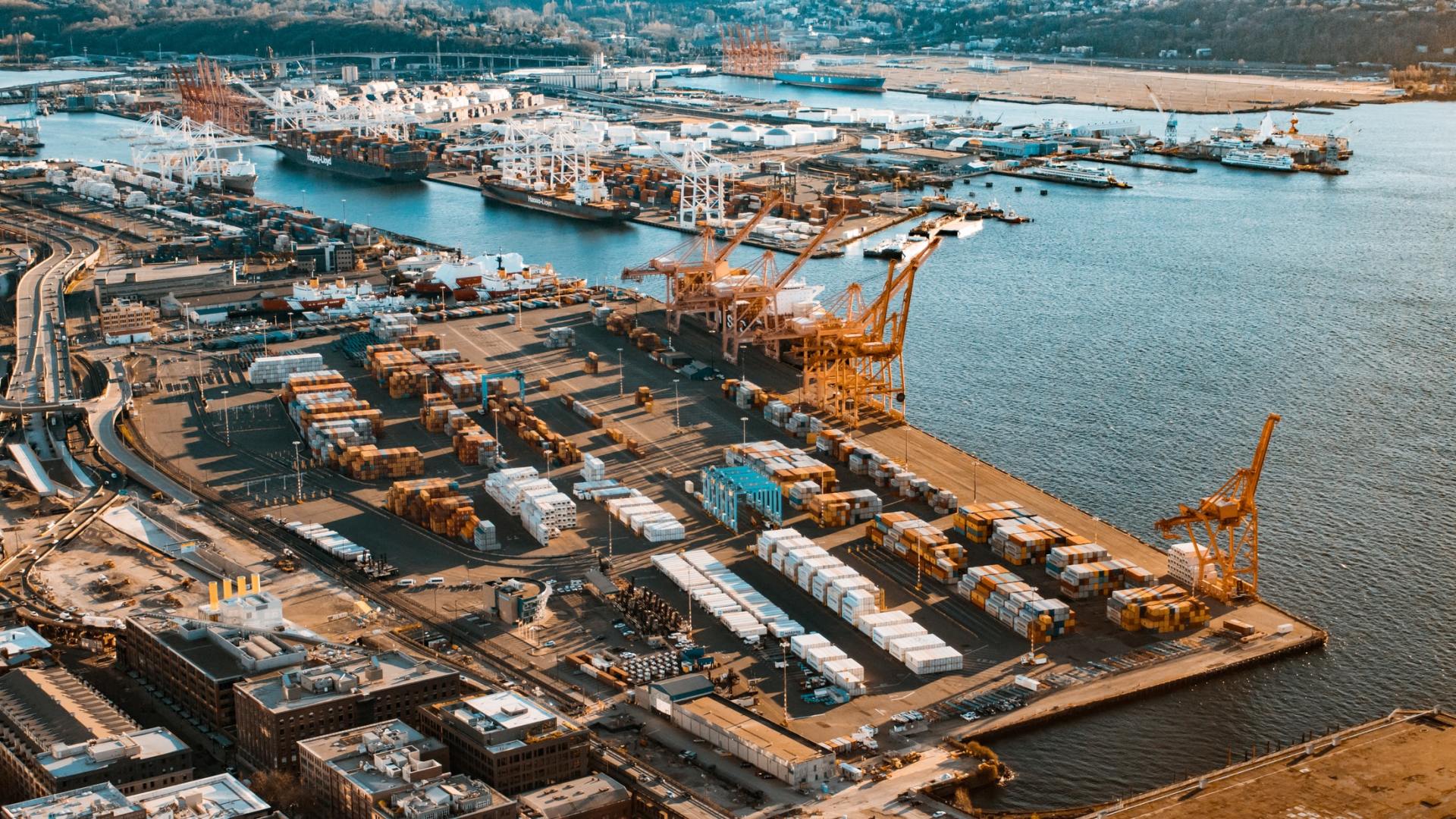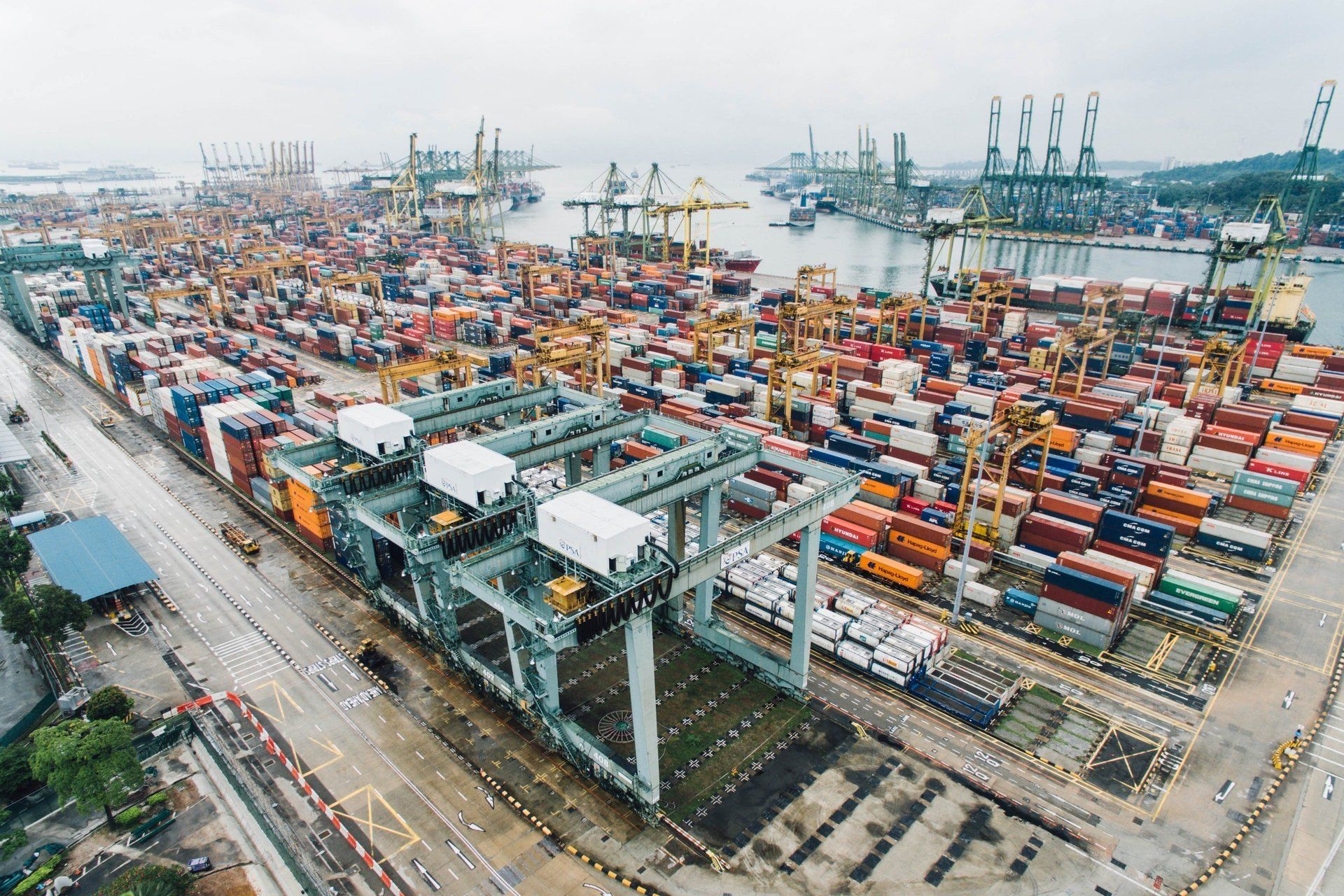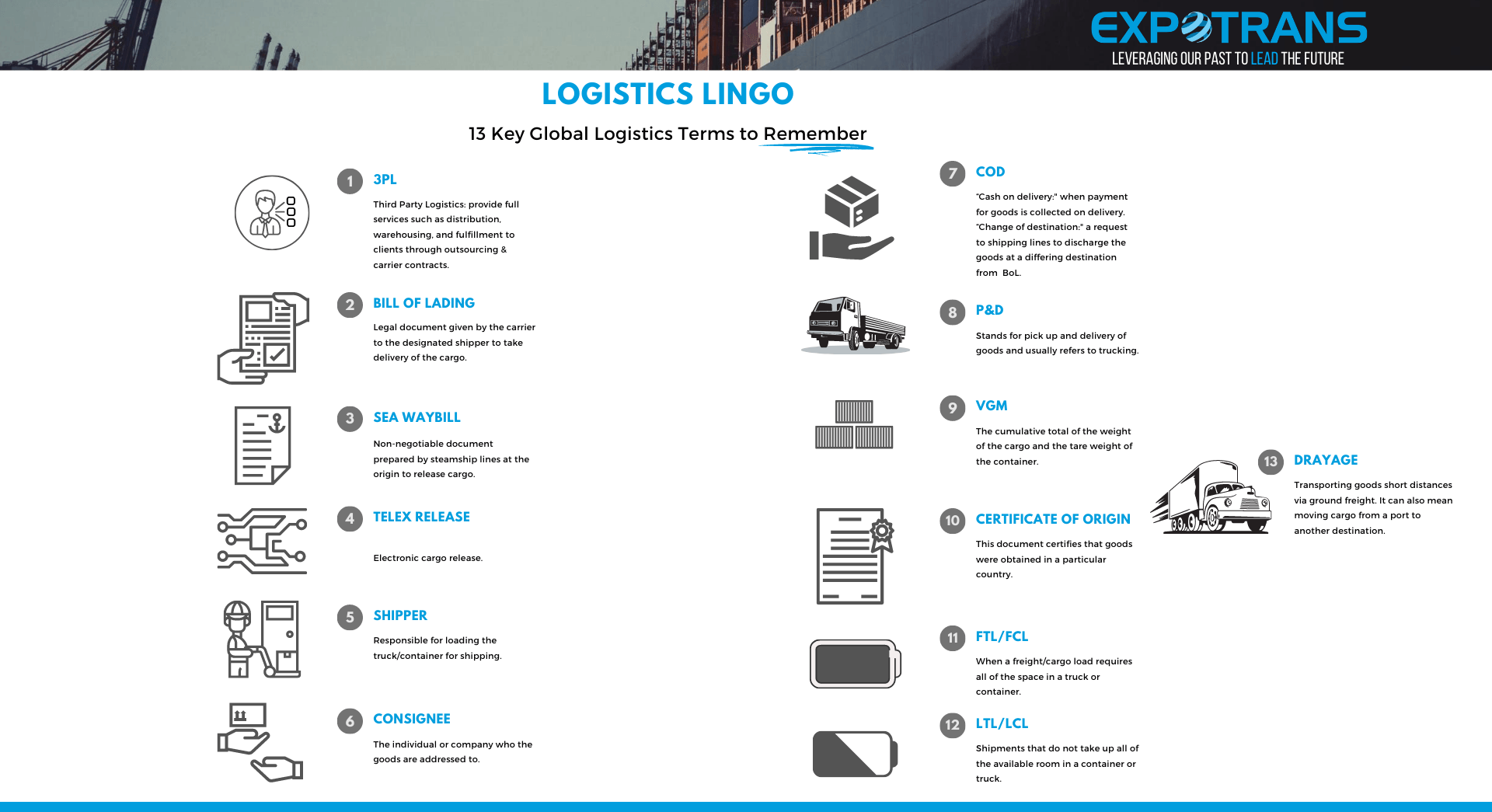Logistics Lingo
13 Key Global Logistics Terms to Remember
A Guide to Logistics Lingo
1. 3PL (Third-Party Logistics)
2. BoL/OBL (Bill of Lading)
This legal document is given by the carrier to the designated shipper to take delivery of the cargo. This document must always be in original form and must remain attached to the freight/cargo. As a result, it is imperative to the movement of freight/cargo since it serves as a receipt of freight services, an official document, and a contract between the companies involved.
3. Sea Waybill
This is a non-negotiable document prepared by steamship lines at the origin to release cargo.
4.Telex Release
When a Bill of Lading (BoL) has been surrendered at a port, this electronic message is sent by agents or shipping lines to the customs destination to release the cargo without the presence of the original BoL.
5. Shipper
Is responsible for loading the truck/container for shipping.
6.Consignee
The individual or company who the goods are addressed to.
7. COD (Cash on Delivery or (Change of Destination)
COD can have multiple meanings however, it is most commonly used as an abbreviation for “cash on delivery,” which is when payment for goods is collected on delivery. COD may also mean “change of destination,” which is a request to shipping lines to discharge the goods at a differing destination from what was listed on the BoL.
8. P&D (Pick up and Delivery)
This term stands for pick up and delivery of goods and usually refers to trucking.
9. VGM (Verified Gross Mass)
This refers to the cumulative total of the weight of the cargo and the tare weight of the container.
10. C of O (Certificate of Origin)
This document certifies that goods were obtained in a particular country.
11. FTL/FCL (Full Truck Load/Full Container Load
A full truckload, similar to a full container load is when a freight/cargo load requires all of the space in a truck or container. This is beneficial when the company is seeking additional control when moving freight, since there are minimal stops and delivery is usually swift. FTL/FCL is ideal for larger loads/shipments and as a result, have a higher cost.
12. LTL/ LCL (Less Than Truckload/ Less Than Container Load)
These terms serve as the opposite of FTL/FCL and are meant to describe shipments that do not take up all of the available room in a container or truck. As a result, these shipments are placed in trucks or containers that have multiple shipments from other customers. LTL/LCL is beneficial for small shipments since it usually is more cost effective than FTL/FCL.
13. Drayage
This refers to transporting goods short distances via ground freight. In some cases, drayage can also mean moving cargo from a port to another destination such as a warehouse or rail ramp.
Key Takeaways
While global logistics jargon may vary, these are widely recognized terms in the industry that are sure to elevate you logistics vocabulary.



Want more information?

Expo-trans International


